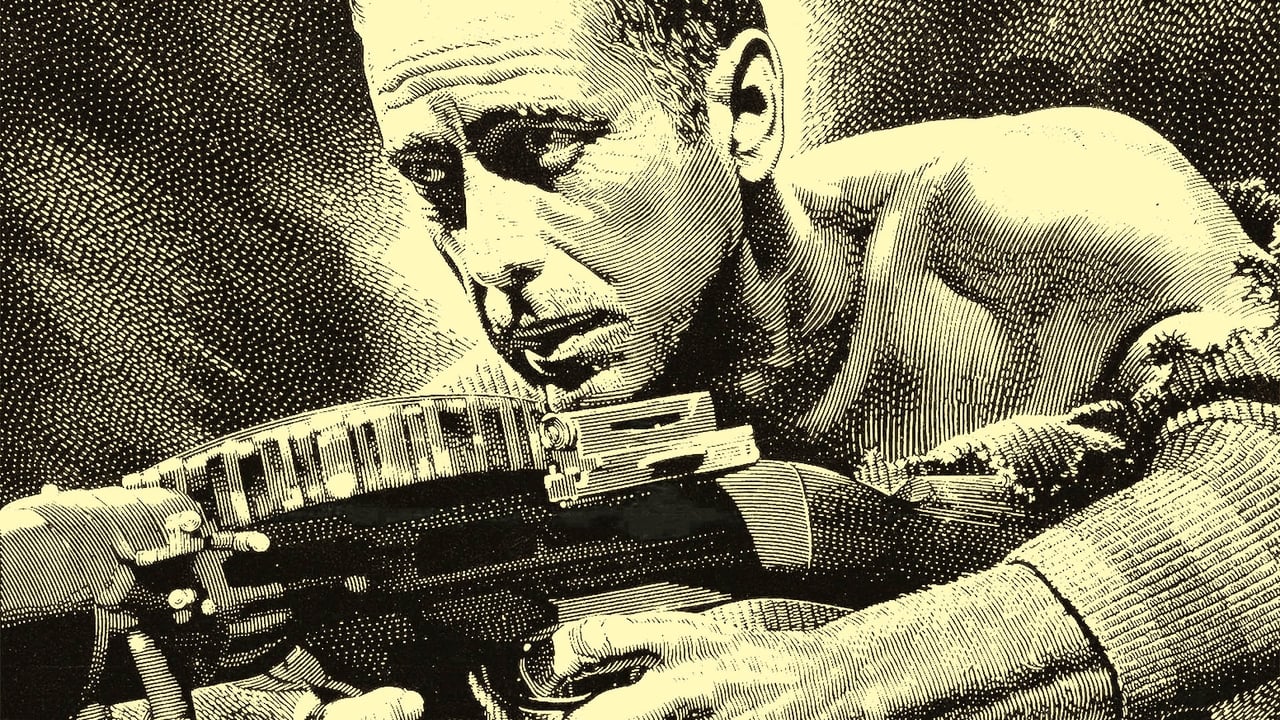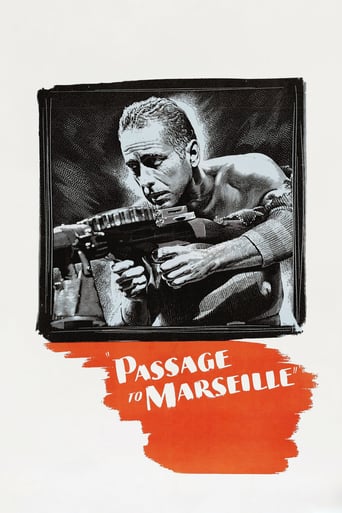



Strong and Moving!
SERIOUSLY. This is what the crap Hollywood still puts out?
View MoreBoring, long, and too preachy.
All of these films share one commonality, that being a kind of emotional center that humanizes a cast of monsters.
View MoreThis is a fascinating story with intriguing progression and characters. The flashbacks and twists throughout keep you absorbed. The dialogue is snappy; the music fits perfectly. Bogart is central of course but the full supporting cast is terrific and provides greater depth. Most importantly - whether yesterday or today - there's always something to be learned from those who fight for freedom. What sacrifices do we make or measures do we take to protect our freedom today, and what do we learn from how that parallels this story? Times change, but the principles remain the same. This movie is a simple but great reminder of that for me.I thoroughly enjoyed this and rate it among my favorites along with other Humphrey Bogart, John Wayne, and Randolph Scott films.
View MoreGeorge Tobias has no scenes with Michele Morgan in this Casablanca reunion entry. For some reason I have never seen it but I was in Paris when Michele Morgan who WAS truly angelic died at the age of 96 a few days ago as I write; I was buying dvds, primarily French but a soupcon of Hollywood, as I often do at this time of year and on my return I chose to watch this one first as a tribute to a beautiful and very fine actress. Alas, she is given little to do and it is easy if not facile to see her as the token 'foreign' leading lady, the Ingrid Bergman part if you will in this never-going-to-work repeat of director Michael Curtiz, top-billed Bogie, Sydney Greenstreet, Peter Lorre and uncle Tom Cobleigh and all. The flashback-within-flashback gimmick is probably where The Locket got its ideas from and though it's serviceable at best it was especially poignant to watch Michele Morgan in her prime teamed with the one American actor who most resembles Jean Gabin, arguably her best co-star.
View MoreMichael Curtiz's Passage to Marseille (1944) has a different story than most war movies but still in my eyes the story was very good and very interesting at the same time. The movie stars Humphrey Bogart as Jean Matrac a convict who after serving 15 years in solitary confinement has bitter memories of hating France because of being found guilty of a murder he didn't commit to one of his co-workers, then after his sentence is completed he and his other convict friends (played by Peter Lorre, George Tobias,etc.) plan to go out to sea in order to help the French army with the WWII effort but at first in order to join they had to tell their convict life story from before they got to the ship to Captain Freycinet (played by Claude Rains) who was one of the few soldiers who trusted them along with the ship's Commanding officer, and there was a particular soldier who didn't like them which was Major Duval (played by Sydney Greenstreet)who thought they enlisted just to continue their criminal lifestyle for which he was proved wrong. This was a war movie with very good military spirit with echoes of The Great Escape (1963) and many other well made WWII movies.
View MorePassage to Marseille (1944) *** (out of 4) Big-budget Warner war film about a group of Devil's Island escapees who join up with the French to battle Germans. I had held off on watching this film for many years expecting your typical WWII drama but that's certainly not what I got as the movie is quite different from other movies and in the end it comes off quite fresh and original. The movie is pretty much told via one flashback after another as we jump around in the story but this never get confusing as the screenplay perfectly builds off everything that happened earlier in the movie. We have Humphrey Bogart and Peter Lorre playing two of the escaped convicts and getting to know their backstory just added to everything that would follow when it came time to escape and then when it came time to fight. The film has an all-star cast that not only has Bogart and Lorre but we also get Claude Rains, Sydney Greenstreet, George Tobias, Philip Dorn, Michele Morgan, John Loder and several other familiar character actors from the studio. The performances by the entire cast are very good but the film clearly belongs to Bogart who once again proves he was one of the all-time great tough guys. Only Bogart could pull off a role like this because he makes you understand why he hates his country yet, at the same time, you can tell that deep down he's going to have courage and be ready to fight when that time comes. Towards the end of the film when everyone is on a boat, which is about to be taken over by the Germans, a great battle follows and this entire sequence contains one great action piece after another and in the middle of it all is Bogart and you believe everything he does. The rest of the cast are all good and add a lot of entertainment to the film as one would expect from such veterans. Curtiz once again shows why he's one of the most underrated director's in the history of this era as he not only handles the action sequences but he also does a marvelous job with the quieter moments and he's perfectly capable of letting the drama build up over time. Many people have called this CASABLANCA-light as this film has pretty much all of the same talent behind it but it's really unfair to compare the two films as they are quite different on all levels. This film here certainly isn't a masterpiece but this is still a very solid action film that deserves a better reputation than it has.
View More